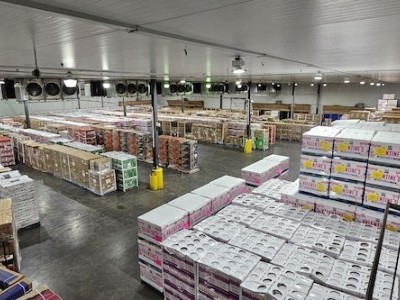Capstone Partners Reports: Logistics technology M&A, fundraising see near-term headwinds, long-term tailwinds
Nov 13, 2024Capstone Partners, a leading middle market investment banking firm, released its inaugural Logistics Technology Sector Update, with insights and analysis on sector trends, buyer activity, and public company performance. After reaching unprecedent levels of activity during the pandemic-driven supply chain crisis, a pull-back in investor risk tolerance and an ongoing freight recession have continued to weigh on Logistics Technology merger and acquisition (M&A) and fundraising activity. The sector’s long-term outlook is being buoyed by an eventual improvement in Freight markets, and by plentiful opportunities for M&A that support digital penetration and address complex and ever-evolving supply chain issues.
Long sales cycles and increasingly selective requirements for technology implementations within the Logistics ecosystem have also pressured logistics technology startups over the past ~24 months, particularly amid a steep drop-off in growth capital across the sector. Logistics technology consumers are investing in “need-to-have” technologies, but have been more reticent to invest in “nice-to-have” technologies.
Not all parts of the Logistics Technology ecosystem are in the doldrums. Logistics technology providers with technologically mature end-to-end software and solutions have continued to see revenue growth, due to resilient Software-as-a-Service (SaaS) sales models. To date, these recurring revenue streams have been further bolstered by expanding new and existing contracts, new product launches, and revenue and technology accretive acquisitions.
Logistics Technology M&A volume to date has fallen from 2021 and 2022 levels but has remained on par with year-to-date (YTD) 2023, with 58 transactions announced or completed. Sector deal volume jumped following the shock of the pandemic as a low-interest rate environment and supply chain disruptions fueled demand for technology-based logistics solutions. To date, a higher-for-longer interest rate environment and profitability pressures, as excess freight capacity plagues the system, has kept sector deal volume below these levels. However, increasingly complex supply chain and logistical operations coupled with low digital adoption across the industry is expected to support long-term sector growth and transaction activity.
The sector has seen 21 platform transactions from 2022 through YTD, a 47.5% decrease compared to the 40 platform transactions between 2019 and 2021. The decline has stemmed from private equity buyers shifting their focus towards add-on transactions to drive growth within existing holdings. Consolidation and tuck-in acquisition tactics have favorably positioned strategic and sponsor-backed buyers within the Logistics Technology M&A market to date. Capstone anticipates this trend will hold strong as private equity buyers continue to grapple with high financing costs.
"The investment opportunity for logistics and supply chain technologies is massive…cash strapped start-ups will continue to look to M&A as a next best option to raising elusive growth capital. Platforms with runway are looking to M&A and evolving more to a more tech-enabled service model rather than pure digital platform to accelerate the path to profitability," said Capstone Managing Director Gordon Mackay, the lead contributor in the newly released report.
Also included in this report:
- A breakdown of Logistics Technology M&A activity, drivers, and analyses on notable transactions in the space.
- Logistics Technology growth capital activity, drivers, and analyses on notable Venture Capital (VC) transactions in the space.
- An overview of logistics technology solutions embedded with Artificial Intelligence (AI) and their use cases, sector activity, and a review of an acquisition of a notable deal in the space.
Similar Stories

Lincoln signs major 3PL in first lease at Park303 Phase 2
View Article
Contecon Guayaquil unveils Ecuador’s first on-dock cold storage facility
View Article
DNV awards Approval in Principle (AiP) to KSOE for vacuum-insulated large-scale liquefied hydrogen tank technology
View ArticleCostco Teamsters overwhelmingly vote to authorize strike
Last week, hundreds of Costco Teamsters nationwide organized practice pickets in preparation for a potential strike. On Tuesday, Teamsters in Hayward, Calif., and Sumner, Wash., held practice picket actions. On…
View Article
C.H. Robinson now accepting applications for annual carrier scholarship program
View Article
Beyond Disruption: Proactive steps to strengthen supply chain resilience
View ArticleGet the most up-to-date trending news!
SubscribeIndustry updates and weekly newsletter direct to your inbox!





